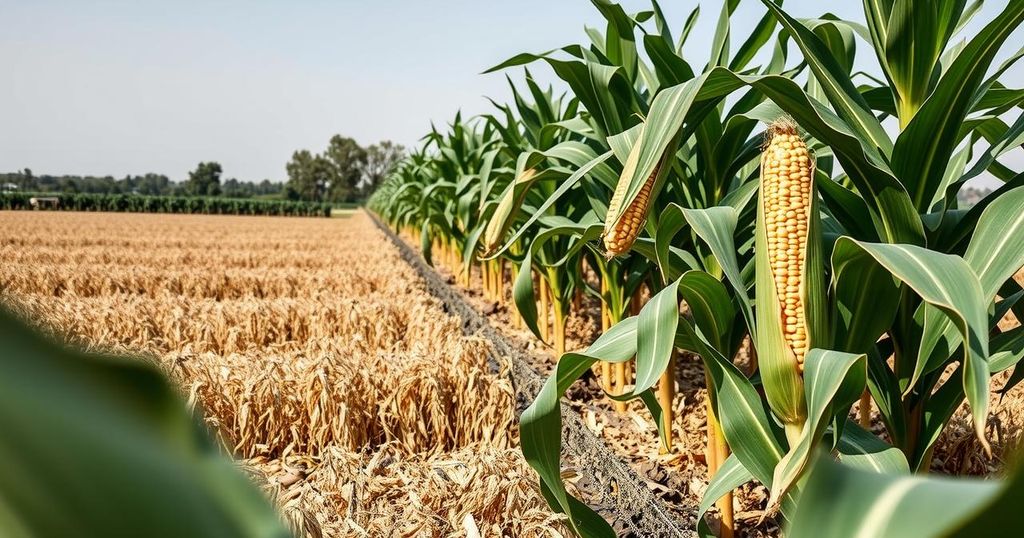Impact of Argentina’s Dry Weather on Soybean and Corn Markets
Increased concerns over crop yields due to dry weather in Argentina have driven soybean and corn prices higher on the Chicago Board of Trade. Soybean futures rose by 1.29% and corn by 0.78%, while Kazakhstan ramped up grain exports by 54%. Wheat futures also saw a slight increase. The shifting agricultural landscape reflects both the impacts of climate change and the evolving dynamics of global trade.
In recent market developments, soybean and corn futures have risen significantly, driven by prevailing dry weather conditions in Argentina that have raised concerns over potential crop yields. Specifically, on the Chicago Board of Trade (CBOT), soybean futures increased by 1.29%, reaching $10.04 per bushel, while corn prices saw a rise of 0.78%, trading at $4.54 per bushel. Although recent rainfall provided some relief, ongoing hot and dry conditions are weighing on the forecast for the upcoming 2024/25 crops. Additionally, wheat futures experienced a slight increase of 0.8% to $5.33 per bushel due to global weather-related supply challenges. In contrast, Kazakhstan has capitalized on these conditions, exporting 3.7 million metric tons of newly harvested grain between September and December, marking a 54% increase from the previous year. However, not all regions are faring well; French farmers have protested against what they perceive as unfair competition and restrictive policies.
The recent fluctuations in grain futures highlight the influence of weather conditions on agricultural markets. Argentina, a significant player in global soybean and corn production, is currently facing severe drought, which raises concerns regarding the subsequent crop yields and food supply. As the agricultural landscape evolves in response to climate change, countries like Kazakhstan are seizing export opportunities, while other farming regions, such as France, grapple with the impacts of market competition and policy challenges. These dynamics are indicative of broader trends in international agricultural trade and economic policy, emphasizing the necessity for adaptability in such a volatile environment.
The rise in soybean and corn prices attributed to Argentina’s dry weather exemplifies the crucial interplay between environmental factors and global agricultural markets. As countries adapt to climatic challenges, regions are reacting variably—some, like Kazakhstan, flourishing, while others, such as France, exhibit discontent toward market pressures. The ongoing volatility underscores the need for strategic responses to climate-related disruptions in agriculture, affecting food supply and trade relations worldwide.
Original Source: finimize.com




Post Comment